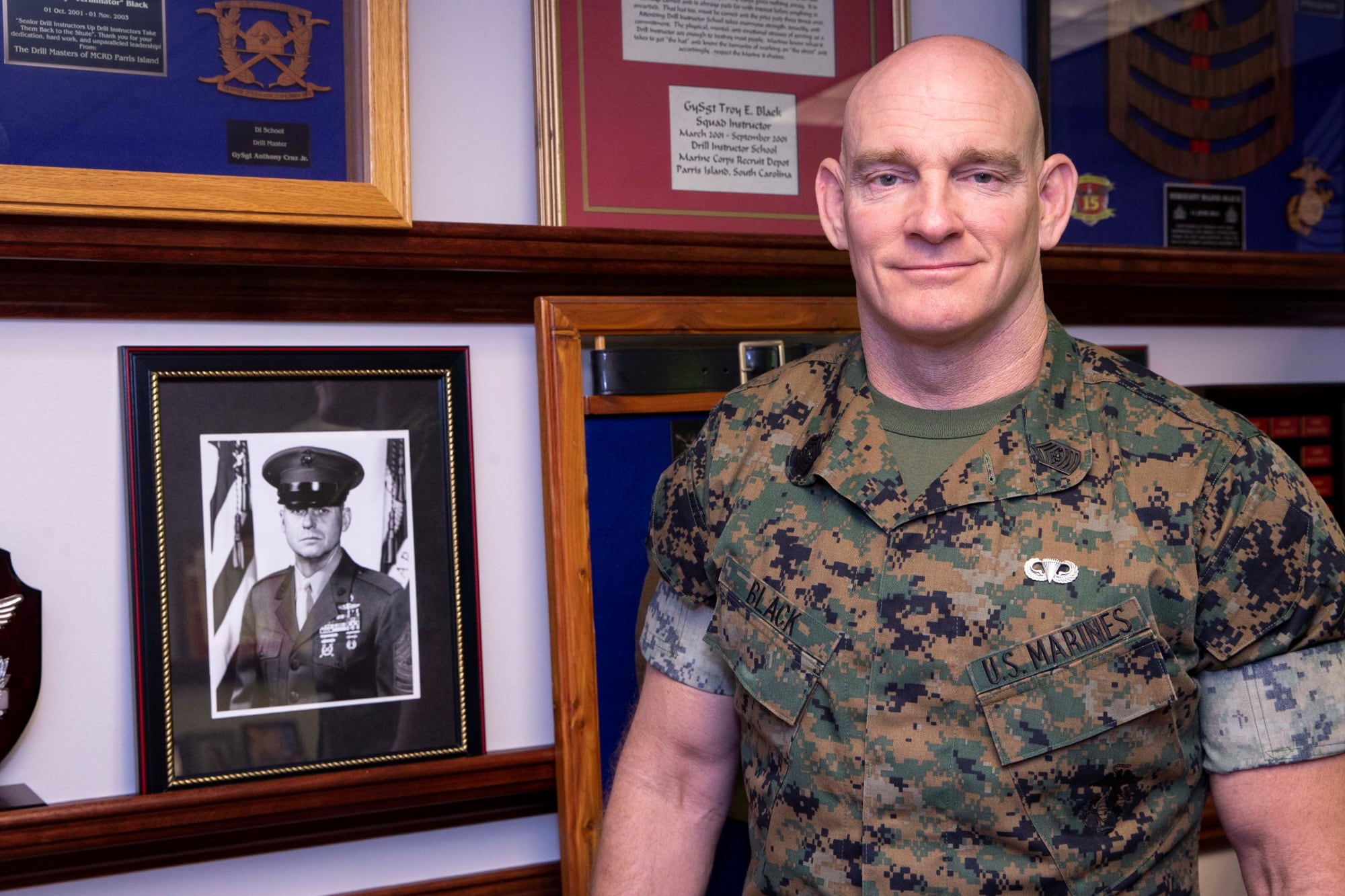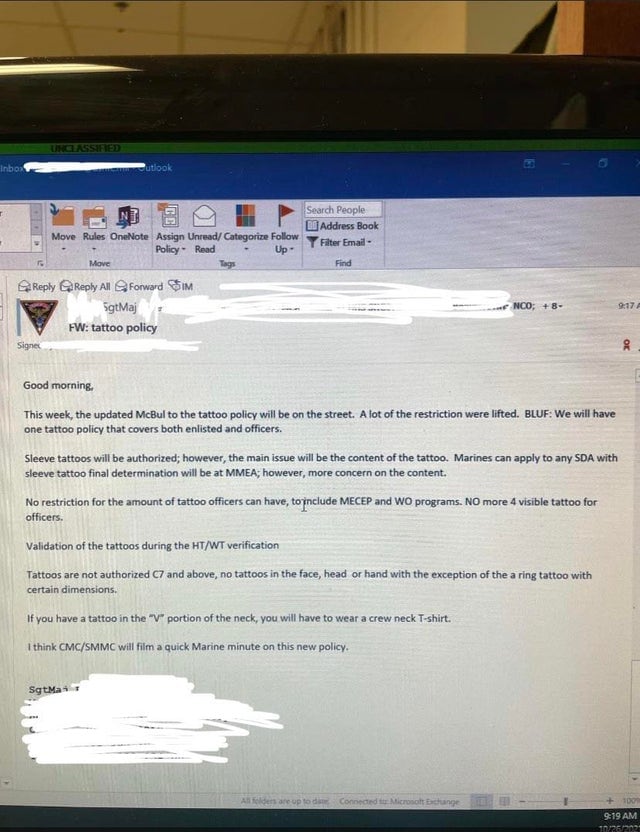If a leaked email is true, the Marine Corps may soon allow sleeve tattoos, an unlimited number of tattoos for officers, and allow future recruiters and drill instructors to sport visible ink.
An email with some details of a potential new policy was posted to the unofficial USMC Reddit page on Tuesday morning and since has been deleted.
Many Marines have long wanted a more relaxed tattoo policy, but citing professionalism and heritage the Corps has continued to enforce the strictest ink policy in the Department of Defense.
“We are currently evaluating the tattoo policy and we will publish an update shortly,” Maj. Jim Stenger confirmed to Marine Corps Times in a phone call Tuesday morning.
Stenger said the email on Reddit likely came from a Marine leader giving a heads up on possible changes coming to Marine Corps policy. He insisted that no decisions on the tattoo policy are final.
“That’s all predecisional and nothing in there has been decided upon by the decision-makers in the process of approving any changes,” he said.
RELATED

The email posted on Reddit appeared to be sent by a sergeant major, with the crest in the upper left corner appearing to belong to Marine Corps Air Station Beaufort, South Carolina.
The email alleged that most restrictions on size, number and placement of tattoos will be gone and instead the Marine Corps will place a greater emphasis on the actual content of the tattoos.
Marine Corps officers are currently restricted to four visible tattoos while wearing the physical training uniform. All ranks face size restrictions for visible tattoos, while tattoos on the neck, face, elbow, hands or knees are banned, with the exception of one small ringlike tattoo on a finger.
The new policy will be the same for all ranks, and elbows and knees will no-long be off-limits, the email on Reddit alleges.
Marines will be allowed to have tattoos in the “V” portion of the neck, the email said, though doing so would mean they must wear a crew neck T-shirt in uniform.
A tenuous history
If sleeve tattoos were allowed, it would be the first time since 2007.
The decision to ban sleeves was made after the 2006 Sergeants Major Symposium brought up fears of “excessive tattooing,” Stars and Stripes reported in 2007.
“Appearances are a direct reflection of the Marine Corps and it is felt excessive tattoos are not in line with the traditional values of the Marine Corps,” then-Lt. Brian P. Donnelly, a Marine Corps spokesman, told Stars and Stripes in 2007.
Prior to the 2007 change Marines were only prohibited from neck and head tattoos.

After years of complaints by Marines the Corps changed its policy once again in 2016.
The new policy relaxed restrictions on the size of tattoos, but still banned sleeves and restricted career opportunities for those with tattoos.
“We are not in a rock and roll band,” then-Marine Corps Commandant Gen. Robert Neller told Marine Corps Times in February 2016. “We are Marines. We have a brand. People expect a certain thing from us.”
The current Corps policy bans Marines with tattoos visible in PT uniform from special duty assignments, like drill instructors or recruiters.
Restrictions on special duty assignments for Marines with visible tattoos also will be gone, the email alleges.
Those assignments come with extra incentive pay, and successful completion of a special duty assignment tends to lead to a faster promotion.
Though those jobs are technically necessary for advancement in the Marine Corps they, “historically put Marines at a more competitive advantage for retention and promotion,” the 2016 bulletin outlining the policy said.
Between restrictions on special duty assignment and denied reenlistments, some Marines had their careers cut short due to the tattoo policy.
Retaining Marines
The Marine Corps’ tattoo policy has stunted or even ended the careers of some Marines who have sported ink.
Between June 2015 and June 2016, 33 Marines were denied reenlistment because of their tattoos, Marine Corps Times reported in 2017.
The Corps recently has started focusing on improving retention as it increases investment into training.
Senior leaders may see a young Marine coming to the end of a first enlistment as “just an E-4, you don’t trust him with anything,” Sergeant Major of the Marine Corps Troy Black said in August at the 2021 Sea Air Space conference at National Harbor, Maryland.
“That same E-4 22-year-old however, with all that experience, will be treated like a king or queen immediately after walking out that door,” Black said.
On Wednesday the Corps asked Marines which non-monetary incentives would convince them to reenlist.
If the Corps does change its tattoo policy to allow all but some hand, face and neck tattoos, one of the bigger complaints by Marines will disappear.
This story is breaking and will be updated.





